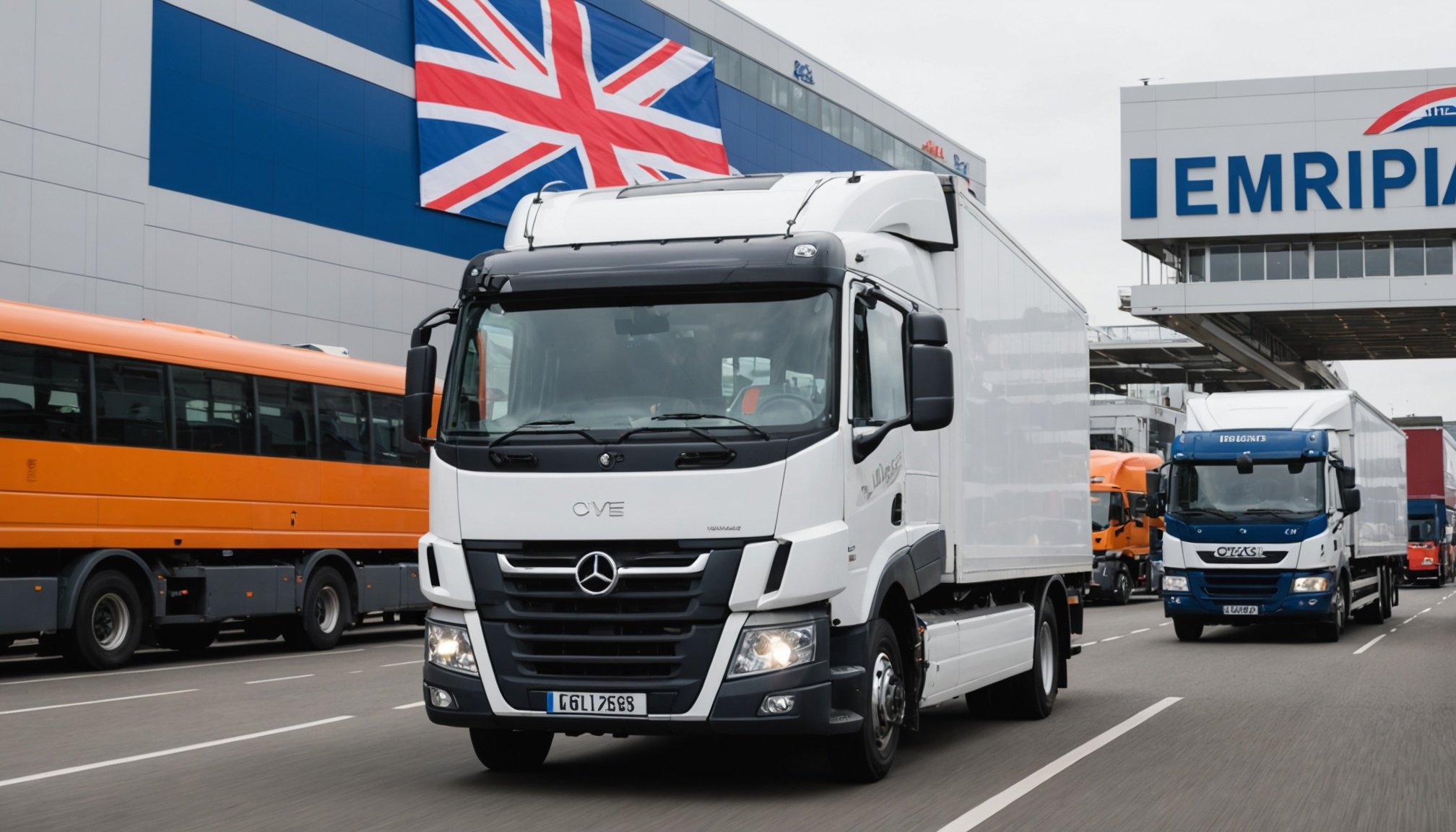Importing a vehicle into the UK can be a complex process filled with numerous regulations and requirements. Whether you are a classic car enthusiast looking to bring in a vintage model or simply seeking a reliable vehicle from overseas, understanding the nuances of importation is crucial. This article will explore the essential considerations you need to keep in mind when importing a car, including customs duties, VAT, insurance, and registration with the DVLA. By the end, you will have a clearer picture of what is involved in bringing a vehicle into the UK.
Understanding Customs and Duties
When you decide to import a vehicle into the UK, the first aspect you must consider is the customs duties applicable to your import. The UK government imposes specific fees on the importation of cars and vehicles, which can vary based on several factors, including the age and value of the vehicle.
Also to discover : What can UK drivers do to improve fuel efficiency in their existing vehicles?
Upon arrival at customs, you will need to provide detailed information about your vehicle to determine the exact duty owed. Generally, new vehicles are subject to a higher percentage of duty compared to older ones, especially if they are considered classic cars. A vehicle is classified as a classic if it is over 40 years old, which often exempts it from certain duties.
In addition to customs duties, you will also be responsible for paying Value Added Tax (VAT). The VAT rate for importing vehicles into the UK is currently at 20% of the vehicle’s value. This percentage includes the cost of the vehicle itself, shipping costs, and any additional fees incurred during transportation. Therefore, it is essential to have a clear understanding of the total cost involved when calculating your budget for importing.
Also to discover : What government incentives are available for purchasing electric vehicles in the UK?
It is worth noting that if you are bringing in a vehicle from another European Union (EU) country, the rules may differ slightly as the UK has special trade agreements with EU nations. It is advisable to check the latest regulations to ensure compliance and avoid unexpected costs.
Shipping and Transport Considerations
Before you import a vehicle, you must plan how you will transport it from its country of origin to the UK. There are various methods of shipping cars, and each comes with its own set of considerations.
The most common methods include container shipping, roll-on/roll-off (RoRo), and air freight. Container shipping is generally the safest option; the vehicle is loaded into a container, secured, and transported by ship. This method offers protection against the elements and potential damage during transit. However, it can also be more expensive.
RoRo shipping allows the vehicle to be driven directly onto the ship and parked in a designated area, making it a more cost-effective option. However, this method exposes the vehicle to the elements and potential hazards during the journey. Air freight, while the fastest shipping method, is rarely used for cars due to the significantly higher costs involved.
Regardless of the shipping method you choose, it is vital to obtain comprehensive insurance for the vehicle during transit. This insurance will protect against potential damage or loss while the vehicle is in transit. Make sure to read the terms carefully to understand the extent of the coverage and any exclusions that may apply.
Finally, always ensure that you work with reputable shipping companies that have good reviews and a solid track record. Research customer experiences and confirm that they have the necessary licenses to operate shipping services internationally.
DVLA Registration Process
Once your vehicle arrives in the UK, the next step in the importation process is registering it with the DVLA (Driver and Vehicle Licensing Agency). This registration is essential to make your vehicle roadworthy in the UK and to comply with local laws.
To register your imported vehicle, you will need to complete several forms and provide various documents, including proof of ownership, the vehicle’s original registration documents, and proof that you have fulfilled customs requirements. Additionally, you must provide a VAT certificate if applicable, and a completed V55/4 form, which is specifically for registering used vehicles.
Another essential requirement is ensuring that the vehicle meets UK safety and environmental standards. This may involve obtaining a certificate of conformity or having the vehicle undergo a Single Vehicle Approval (SVA) test to confirm that it complies with the necessary regulations.
Once all documents are submitted and approved, you will receive your vehicle registration number, which you must display on your vehicle. Additionally, you will need to obtain an insurance policy for the vehicle before you can legally drive it on UK roads.
Keep in mind that the DVLA may charge a fee for registration, which can vary based on the type of vehicle you are registering. Furthermore, be prepared for potential delays during the registration process, especially if there are discrepancies in your documentation.
Insurance and Road Tax Obligations
The importance of obtaining proper insurance coverage cannot be overstated when importing a vehicle into the UK. Before you can legally drive your car on UK roads, it is mandatory to have at least third-party insurance coverage. This insurance protects you against claims made by other road users in the event of an accident.
When searching for insurance, it is essential to shop around and compare quotes from different providers. Factors that may affect your premium include the age and type of the car, your driving history, and the location where you reside. Classic cars may also require specialized insurance coverage due to their value and the unique risks associated with them.
In addition to insurance, you will also need to pay road tax (also known as Vehicle Excise Duty or VED) to legally operate your vehicle on UK roads. The amount of tax you pay will depend on the vehicle’s carbon emissions, fuel type, and age. Newly imported vehicles may need to pay a different rate compared to older models.
Ensure that you keep up to date with your insurance and tax payments to avoid potential fines or penalties. The DVLA frequently conducts checks to ensure compliance and may take action against vehicles that are not properly registered or insured.
Common Challenges and Tips for a Smooth Import Process
Importing a vehicle into the UK can present unique challenges, but being prepared can help ensure a smooth experience. One of the common issues faced by importers is navigating the bureaucracy surrounding customs and registration. It is crucial to keep meticulous records and maintain copies of all documentation related to the vehicle import process. This includes invoices, customs declarations, and any correspondence with shipping companies or the DVLA.
Another challenge can arise from the customs inspection process. Sometimes, customs officials may require additional documentation or information before releasing the vehicle. To avoid potential delays, make sure you have all the necessary paperwork organized and ready for submission.
Additionally, consider reaching out to professionals who specialize in vehicle importation. They can provide valuable insights and guidance throughout the process, potentially saving you time and hassle.
Staying informed about the current regulations and changes to import laws is also vital. The rules surrounding importing vehicles can be subject to change, especially with the evolving trade agreements post-Brexit. Regularly check government websites or consult with importation agencies to ensure you remain compliant.
Lastly, don’t rush the process. Take your time to research and plan each step thoroughly to avoid mistakes that could result in costly delays or penalties. With the right approach, importing a vehicle into the UK from abroad can be a rewarding experience.
Importing a vehicle into the UK from abroad involves a series of considerations that range from understanding customs duties and shipping methods to registering with the DVLA and obtaining insurance. By familiarizing yourselves with these essential aspects, you can better navigate the complexities of the importation process.
Whether you are importing a modern vehicle or a classic car, being diligent and well-prepared will make the journey smoother. Remember to stay updated on regulations, keep thorough documentation, and consult professionals if needed. With patience and attention to detail, you can successfully bring your vehicle into the UK and hit the road with confidence.











